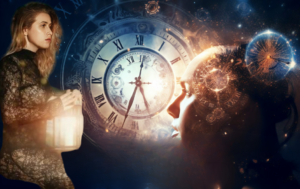Past Life Memories have captivated people across cultures and generations. While some view them as evidence of reincarnation, others consider them products of imagination or psychological processes. Psychologists have long debated their origins and significance, striving to decode these enigmatic experiences and their potential impact on mental health and personal growth.
Understanding Past Life Memories
Psychologists define Past Life Memories as vivid recollections that seem disconnected from an individual’s current life. These memories frequently emerge through dreams, deep meditation, or guided regression therapy. While they might appear supernatural, many experts suggest they could be shaped by subconscious thoughts, forgotten experiences, or cultural influences.
For instance, individuals might remember intricate details about historical events or locations they have never visited. But are these truly remnants of a past existence, or could they be fabricated by the mind’s ability to synthesize information?
Psychological Theories Behind Past Life Memories

Experts propose several psychological explanations for Past Life Memories:
Cryptomnesia: This occurs when forgotten information resurfaces, but the person believes it to be an original thought or memory. For example, hearing about an ancient civilization in childhood could resurface later as a vivid “memory.”
Imagination and Suggestibility: Human minds are highly imaginative. When influenced by stories, movies, or even therapists during regression sessions, people may construct intricate past-life scenarios.
Trauma and Memory Fragmentation: Memories of traumatic events in a current life might be reframed as past-life experiences, providing an emotional detachment that makes them easier to process.
These theories suggest that Past Life Memories might not always be what they seem, though they remain deeply meaningful for those who experience them.
Role of Regression Therapy
Regression therapy is one of the most common tools used to explore Past Life Memories. Through hypnosis, individuals are guided into a deeply relaxed state to access their subconscious.
Critics argue that regression therapy often leads to the creation of false memories, as the mind attempts to “fill in the blanks” during suggestive sessions. However, supporters claim that it helps people uncover hidden emotions, understand recurring fears, or resolve unexplained guilt.
Psychologists caution against interpreting such memories literally. Instead, they focus on the therapeutic value, helping individuals process emotions and gain insights into their current lives.
Reincarnation and Cultural Beliefs
Reincarnation beliefs provide a spiritual framework for Past Life Memories. Religions such as Hinduism, Buddhism, and some New Age practices embrace the idea of rebirth, offering explanations for these experiences.
Cultural narratives also play a significant role in shaping how people perceive past lives. For instance, someone raised in a culture that venerates ancestors might interpret their memories as ancestral wisdom rather than personal experiences.
Psychologists must navigate these cultural contexts carefully, respecting spiritual beliefs while applying scientific methods to understand the phenomenon.
Ethical Considerations in Research and Therapy
Studying Past Life Memories presents ethical challenges. Therapists must avoid implanting false memories during sessions and ensure their methods adhere to professional guidelines. Misinterpreting these memories as evidence of reincarnation without scientific validation can lead to psychological harm.
Additionally, cultural sensitivity is critical. For clients from spiritual backgrounds, these memories might hold profound meaning, while others might find them distressing or confusing. Balancing scientific inquiry with compassion is essential.
Why Do Past Life Memories Matter?

Regardless of their origins, Past Life Memories often serve as a tool for self-reflection. Many individuals find meaning and comfort in these experiences, using them to explore unresolved emotions or explain their life’s patterns.
Psychologists view these memories as windows into the subconscious, offering clues about hidden fears, desires, or coping mechanisms. Even if they are not literal past-life recollections, their therapeutic potential makes them worth exploring.
Ongoing Mystery of Past Life Memories
While science has yet to provide definitive answers about Past Life Memories, their significance cannot be denied. They challenge our understanding of memory, identity, and the human psyche. Whether seen through the lens of psychology or spirituality, these experiences offer a unique opportunity to delve into the mysteries of consciousness.
By decoding these memories, psychologists aim to uncover deeper truths about human nature, fostering healing and growth for those who experience them. As research continues, the dialogue between science and spirituality remains a captivating journey.


